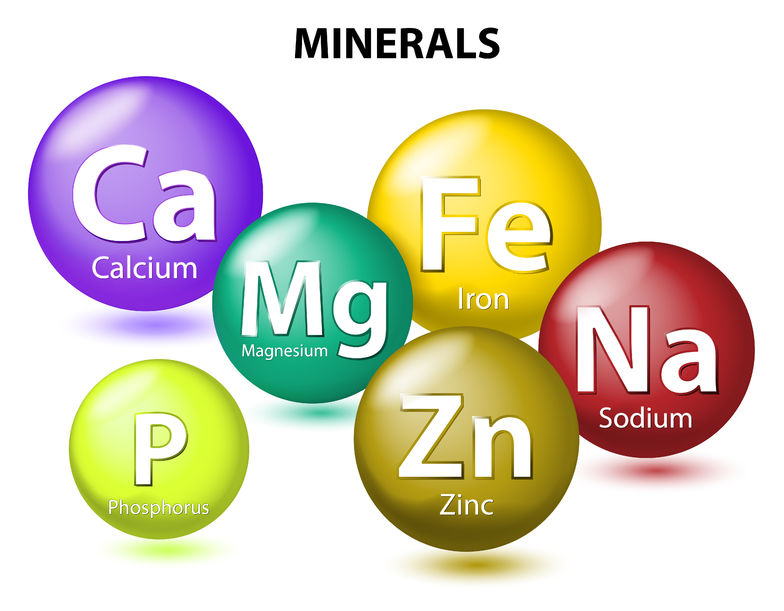Menopause and Magnesium
How Can Minerals Help Menopause Symptoms?
Minerals play an essential role in supporting overall health, during menopause. Here are some ways which specific minerals can help alleviate menopause symptoms:
1. **Calcium:** Adequate calcium intake is crucial during menopause to support bone health and reduce the risk of osteoporosis, which becomes more prevalent after menopause.
2. **Magnesium:** Magnesium can help reduce menopausal symptoms such as sleep disturbances, mood swings, and muscle cramps. It also supports bone health and may help alleviate symptoms like anxiety and irritability.
3. **Zinc:** Zinc supports the immune system and can help with hormonal balance during menopause. It also plays a role in supporting skin health and wound healing.
4. **Selenium:** Selenium is an antioxidant that can help reduce oxidative stress in the body. It may also support thyroid function, which can be affected during menopause.
5. **Iron:** Iron levels may fluctuate during menopause, and some women may experience iron deficiency. Adequate iron intake is important for energy levels and overall well-being.
6. **Potassium:** Potassium helps regulate blood pressure and fluid balance in the body. Maintaining adequate potassium levels can help reduce bloating and fluid retention, which are common during menopause.
These minerals can be obtained through a balanced diet rich in fruits, vegetables, whole grains, nuts, seeds, and lean proteins. However, in some cases, supplementation may be necessary to ensure adequate intake, especially if there are specific deficiencies.
What organs does menopause primarily affect?
Menopause primarily affects the reproductive system and related organs in women. The key organs impacted by menopause include:
1. **Ovaries:** During menopause, the ovaries gradually decrease their production of estrogen and progesterone, leading to hormonal fluctuations and ultimately the cessation of menstruation.
2. **Uterus (Womb):** The uterus is where menstruation occurs, and during menopause, the lining of the uterus (endometrium) may become thinner due to decreased estrogen levels. This can result in changes in menstrual bleeding patterns.
3. **Vagina:** Lower estrogen levels during menopause can lead to vaginal dryness, thinning of the vaginal walls (vaginal atrophy), and reduced lubrication, which may cause discomfort during intercourse.
4. **Breasts:** Menopause can affect breast tissue, potentially resulting in changes such as decreased firmness, increased breast tenderness, or an increased risk of breast cancer in some women.
5. **Brain:** Estrogen receptors are found in various regions of the brain, and declining estrogen levels during menopause can impact cognitive functions, mood regulation, and memory. Some women may experience symptoms like brain fog, forgetfulness, or mood swings.
6. **Bones:** Menopause is associated with an increased risk of osteoporosis, a condition characterized by reduced bone density and increased susceptibility to fractures. Estrogen helps maintain bone density, so the decline in estrogen during menopause can lead to bone loss.
While menopause primarily affects these organs, it's important to recognize that the hormonal changes and associated symptoms of menopause can have systemic effects on the body, impacting various physiological functions and overall well-being. Managing these changes through lifestyle modifications, hormone therapy, and other treatments can help alleviate symptoms.
How can Magnesium help menopausal symptoms?
Magnesium can play a beneficial role in alleviating menopausal symptoms in several ways:
1. **Reducing Hot Flashes and Night Sweats:** Magnesium has been shown to help regulate body temperature and may help reduce the frequency and intensity of hot flashes and night sweats commonly experienced during menopause.
2. **Improving Mood and Sleep:** Magnesium has a calming effect on the nervous system and can help reduce irritability, anxiety, and insomnia, which are common symptoms during menopause.
3. **Supporting Bone Health:** Magnesium is essential for bone formation and maintenance. Adequate magnesium intake can help support bone density and reduce the risk of osteoporosis, which becomes more prevalent after menopause.
4. **Relieving Muscle Cramps and Tension:** Magnesium helps relax muscles and can alleviate muscle cramps, spasms, and tension that women may experience during menopause.
5. **Regulating Blood Sugar Levels:** Magnesium plays a role in regulating insulin sensitivity and blood sugar levels, which can be beneficial for managing symptoms like fatigue and mood swings often associated with menopause.
What are the top five ways Magnesium helps female athletes whether they are in menopause or not?
Magnesium plays a crucial role in supporting the overall health and performance of female athletes. Here are five key benefits of magnesium for female athletes:
1. **Muscle Function and Recovery:** Magnesium is essential for proper muscle function, including muscle contraction and relaxation. Female athletes can benefit from sufficient magnesium levels to help prevent muscle cramps, spasms, and fatigue during exercise. Additionally, magnesium aids in muscle recovery post-workout, promoting faster healing and reduced soreness.
2. **Energy Production:** Magnesium is a cofactor in over 300 enzymatic reactions in the body, including those involved in energy production. Adequate magnesium levels can help optimize energy metabolism and the conversion of carbohydrates and fats into usable energy, which is vital for sustaining endurance and performance during training and competitions.
3. **Bone Health:** Magnesium works in conjunction with calcium, Vitamin K2 and vitamin D to support bone health and strength. Female athletes, especially those engaging in high-impact activities, require sufficient magnesium to maintain bone density and reduce the risk of stress fractures and other bone-related injuries.
4. **Heart Health:** Magnesium is important for maintaining a healthy cardiovascular system. It helps regulate heart rhythm, support blood vessel function, and promote optimal blood pressure levels. Female athletes can benefit from magnesium's role in cardiovascular health, reducing the risk of heart palpitations, arrhythmias, and other cardiac issues.
5. **Stress Management and Sleep:** Magnesium has a calming effect on the nervous system and can help regulate stress hormones like cortisol. Female athletes may experience improved stress management, better sleep quality, and reduced anxiety or nervousness with adequate magnesium intake. Quality sleep is essential for recovery and performance optimization. Strees tends to elevate the need for Magnesium in the body to regulate metabolic balance.
Ensuring adequate magnesium intake through a balanced diet rich in magnesium-containing foods (such as leafy greens, nuts, seeds, whole grains, and legumes) or supplementation when necessary can help female athletes maintain optimal performance, recovery, and overall well-being. Consulting with a healthcare provider or a sports nutritionist can help tailor magnesium intake to individual needs and athletic goals.
It's important to note that while magnesium supplementation can help address some menopausal symptoms, it's essential to consult with a healthcare provider before starting any new supplement regimen, especially if you have any underlying health conditions or are taking medications. A registered dietitian can provide personalized recommendations based on your individual needs and ensure that supplementation is safe and effective for you.


